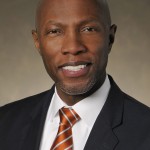Debunking popular financial myths
We’ve all shared financial advice among friends, family and colleagues, but not every tidbit you hear is always true. Let’s set the record straight and put an end to some of the most common financial misconceptions out there. Here are the top 5 financial myths debunked:
Myth 1: It is better to own a home than to rent.

Anthony Paul
Homeownership can actually end up costing more than renting. By owning a home, it subjects you to more risks. There is never a guarantee that the home will appreciate and it can be highly illiquid. You’re also responsible for the maintenance of your home should you choose to own while renters can often call upon their landlord or building management to take care of a leaky faucet or chipped paint.
In the end, homeownership is a very personal choice dependent on your goals. Homeownership may be a more natural next step for you if you are older or are planning to start a family soon. But if you’re at the beginning of your career and/or a bit more transient, then renting may be the best choice.
Myth 2: Cashback credit cards will put more money in your pocket.
This is only true if you pay off your balance each month, especially since rewards cards typically have higher interest rates than other cards. While building credit is wise because it can help you apply for a mortgage or car loan, you’re better off choosing a lower interest credit card or paying with cash if you don’t think you can pay off the card each month.
Myth 3: Plan on spending 4 percent of your nest egg annually in retirement.
Although this is a general guideline to help protect against outliving your savings, it may be a bit too optimistic. The current financial environment is different than in years past. In today’s market, interest rates are lower than they have been historically and we are in a very pricey market. A better guideline would be to spend 3 to 3.5 percent annually in retirement.
Myth 4: You need at least three to six months of expenses in your emergency reserve.
For dual income households, your emergency reserve should be at least six months of expenses. For single-income households, it is recommended to reserve at least nine months of expenses. While this is a general guideline, you may have to dip into their emergency reserve between jobs. This means you’ll want to save enough to cover expenses over the time period it could take you to find a new job. Keep in mind, the more senior your position and income is, the longer it can take you to find a new job. Save extra and adjust your emergency reserve based on the hiring environment and role you are looking for.
Myth 5: It’s too late to reach my financial goals.
With financial planning, I like to say that while you can’t get yesterday back, you always have today or tomorrow. It is never too late to work towards your financial goals. If you haven’t started saving for retirement, start saving now and make sure you are taking advantage of any employer-sponsored retirement options. I also recommend always trying to reduce debt. If you are an empty nester, consider downsizing your home. This can help reduce your mortgage and free up money for other financial goals.
Sometimes it can be hard to navigate through all the financial resources and information that are available in the public. Now that you have a better understanding of the general guidelines that can lead you to better financial health, make sure to share with your friends, family and colleagues.
Anthony Paul is a Financial Advisor with the Global Wealth Management Division of Morgan Stanley in Denver. He can be reached at 303-925-9683 or Anthony.D.Paul@MS.com.
The information contained in this interview is not a solicitation to purchase or sell investments. Any information presented is general in nature and not intended to provide individually tailored investment advice. The strategies and/or investments referenced may not be suitable for all investors as the appropriateness of a particular investment or strategy will depend on an investor’s individual circumstances and objectives. Investing involves risks and there is always the potential of losing money when you invest. The views expressed herein are those of the author and may not necessarily reflect the views of Morgan Stanley Wealth Management, or its affiliates. Morgan Stanley Smith Barney, LLC, member SIPC.
Anthony Paul
Latest posts by Anthony Paul (see all)
- Debunking popular financial myths - April 3, 2017
- Tips for reducing financial stress this holiday season - December 14, 2016
- No time like the present to start saving for retirement - November 16, 2016

You must be logged in to post a comment Login